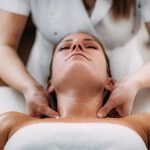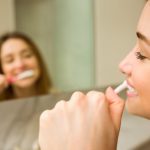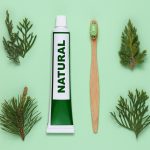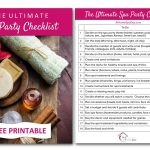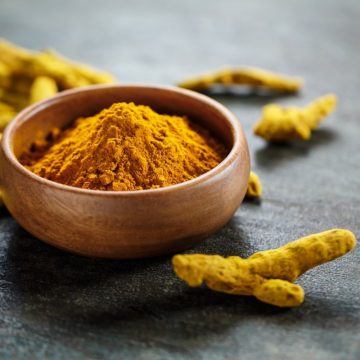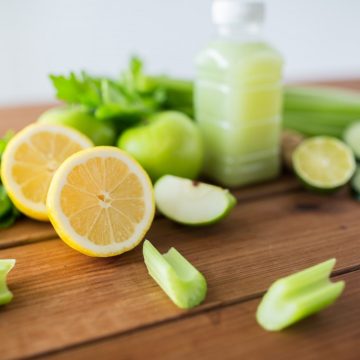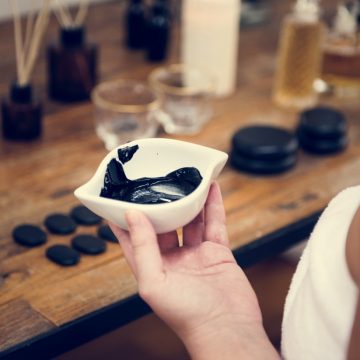This homemade aloe vera mouthwash has been proven to prevent and reduce plaque as well as store-bought mouthwashes. It also freshens the breath and removes toxins and inflammation from the mouth which lesson chances of getting infections.
 Are you willing to trade your regular oral rinse for an aloe vera mouthwash recipe?
Are you willing to trade your regular oral rinse for an aloe vera mouthwash recipe?
Bad breath is no laughing matter. So are plaque and gingivitis.
Yet in our haste to remedy these dental issues, we seek what commercial brands are making us believe.
We blindly follow the crowd's conventional ways, which, if we're to tell the truth, aren't exactly doing the job.
In fact, most mouthwashes only mask bad breath and don't actually address the root cause of the problem.
The same can also be said about purported mouthwashes that target dental plaque and gum disease.
This is why today, I've decided to step in and suggest a natural mouthwash recipe that will surely blow your mind.
It primarily contains aloe vera, among a few other therapeutic ingredients, which has a long-standing reputation in dentistry.
Dangers Of Mouthwash: Why You Should Avoid Standard Mouthwash
The whole point of gargling a formulated liquid is to improve your oral health.
However, with the commercialization of this idea comes the necessity to tweak and add questionable ingredients which we are being conditioned to believe are helpful.
And if we're only vigilant, we can easily spot the toxic and unnecessary from the growing list of chemicals added into our regular mouthwashes.
Here are some of the stuff that happens with your mouthwash which raised concerns regarding their safety and effectiveness:
1. Mouthwash Tends To Destroy Your Oral Microbiome
The insides of your mouth are designed specifically to house microorganisms that help maintain good oral and gut health.
Yes, you heard it right.
A healthy mix of bacteria and acidity is important even for our digestive and respiratory health despite what mouthwash brands are telling us about ridding them altogether.
Apparently, even if your standard oral rinse can improve your breath, it leaves your mouth in a state of microbial imbalance.
It destroys the good bacteria along with the rest of the microorganisms in your mouth, which can create more health risks than good.
The onsite "good" bacteria in your mouth actually act as agents against cavities, gingivitis, and halitosis.
Failure to maintain their population can contribute to an increase in infections and more dental issues.
2. Mouthwash Causes Your Mouth To Dry
Even with a single gargle, your regular mouthwash can already cause your mouth to dry like a parchment.
This is because it can limit the production of your saliva that helps not only with breaking down of food but also with remineralization of your teeth and natural prevention of cavities.
It happens when you followed up your brushing with an oral rinse.
The toothpaste has anionic compounds that linger after brushing, and they interact radically with the anionic compounds of the mouthwash.
The effect produces a drying sensation on your tongue, inner cheeks, and gums.
This causes more "bad" microorganisms to dominate your mouth and reverse the therapeutic effects of your oral hygiene products as well as your own saliva.
3. Mouthwash May Even Aggravate Bad Breath
As with the more serious oral disease known as halitosis, bad breath cannot totally be expelled by simple gargling.
In fact, the drying sensation it leaves on your mouth can even create a breeding ground for bacteria that produces a more pungent smell.
This typically only applies to mouthwashes that contain alcohol.
4. Mouthwash Usually Causes Mouth Sores And Ulcers
Along with the drying effect comes damaging results to your inner cheeks' protective layer.
It causes a stinging sensation that eventually forms holes on your mouth tissues.
These ulcers may aggravate your existing dental condition as they get exposed to more bad bacteria from the site of sores.
5. Mouthwash Contains Toxic Chemicals
Aside from alcohol which makes up 26% of your mouthwash, there are also other chemical ingredients present in each bottle such as chlorine dioxide, chlorhexidine, parabens, Cocamidopropyl Betaine, parabens, poloxamer, formaldehyde, and saccharine.
These chemicals, while deemed "helpful" by manufacturers, can cause a series of problems ranging from mouth ulcers and contact dermatitis to endocrine disruption and cancer.
Surely you wouldn't want these toxicants any near your mouth or they will leach into your organs and bloodstream.
Benefits Of Aloe Vera For Teeth
I know that aloe vera reminds you of skin moisturizers and hair treatments.
But this time it takes the center stage of dentistry because of its awesome benefits to your teeth and oral health in general.
Here are some of what aloe vera can offer:
1. It Soothes Mouth Sores And Relieves Inflammation
From oral lichen planus and fibrosis to stomatitis and mucositis, aloe vera extends its soothing quality to your aching mouth sores and inflamed mouth tissues.
One of the many successful studies is that of hospital patients who experienced drying of mouth but were treated with aloe vera.
The dryness and soreness of their mouth were significantly reduced, which just goes to show that aloe vera is effective as a cure for common oral health problems.
2. It Prevents Gingivitis And Periodontitis
Gums are equally important as your teeth, so you must give them special care as well.
If you're suffering from gum disease, regular use of aloe vera is preferable over your standard mouthwash that stings.
Not only it eliminates the burning sensation on your mouth tissues, but it also possesses a moisturizing quality that improves the healing of your gingivitis or periodontitis.
3. It Helps Fight Cavity-Causing Bacteria
Studies have proven that toothpaste containing aloe vera is effective in combating the growth of bacteria on your teeth which cause cavities.
So why not isolate the aloe vera itself and eliminate the rest of unnecessary toothpaste ingredients (see my previous post)?
By using aloe vera gel on your teeth, you are making a bold move towards a more natural approach to teeth preservation.
4. It Is A Gentle Anti-Plaque Ingredient
Because it is less abrasive than common toothpaste ingredients, aloe vera is typically recommended by dentists for those with sensitive teeth.
It contains anthraquinones, which are both anti-inflammatory and anti-plaque that help in maintaining a good set of teeth.
5. It Is An Antimicrobial Agent For Root Canal Filling And Gum Treatment
If bad bacteria and certain fungi are causing your teeth and gums to be problematic, you should try aloe vera gel to end your woes.
This plant extract can serve as effective protection against infections of the mouth.
{GET YOUR ALOE VERA JUICE HERE}
Benefits Of Sea Salt For Teeth
Sea salt may not usually make it to your everyday diet, but it is an oral hygiene pioneer that beats your standard mouthwash.
Here are the reasons why:
1. It Stimulates Your Salivary Glands
This means that you get a sufficient amount of saliva for lubricating the insides of your mouth and help maintain the pH balance necessary for optimal dental health.
Saliva is also important for neutralizing acids and a natural cleanser against bad bacteria in the mouth.
By stimulating your salivary glands, you can prevent the same drying effect from your mouthwash and even help promote a natural oral microbiome.
2. It Is An Effective Solution Against Gum Diseases
Saline solutions or those water-based sea salt solutions have a longstanding reputation in dealing with mouth infections.
Apparently, they can help inhibit the growth of infections and reduce inflammation of the gums and sores.
3. It Remineralizes Your Teeth
Sea salt contains trace minerals that help deposit nutrients to your teeth and promote the formation of a crystalline structure that will protect them from dental caries.
The mechanism of remineralization allows you to preempt the onset of plaque and the deterioration of your teeth.
Benefits Of Peppermint For Teeth
Perhaps you're guessing that peppermint is a mainstay in oral hygiene products only because of one thing: it freshens your breath.
While it is obvious that its minty flavor lends a refreshing sensation and a cool scent, its abilities also include curing halitosis.
It targets the bacteria itself which causes halitosis instead of just masking the smell with its menthol-like scent.
In fact, you may even gargle a peppermint mouthwash to cure your sore throat.
That is how antimicrobial and antiseptic this ingredient is, especially in a concentrated form of essential oil.
It helps in ridding your teeth of pathogens that cause cavities and biofilm.
Peppermint also plays a role in stimulating salivary glands to produce saliva that is essential for naturally fresh breath.
{GET YOUR PEPPERMINT ESSENTIAL OIL HERE}
Benefits Of Cinnamon For Teeth
As the cinnamon season is now upon us, you should take advantage of using it not just for food but also for your teeth.
This popular spice is a traditional tooth powder of the olden days as it helps in treating toothache, bleeding gums, and bad breath.
It similarly helps in maintaining a balanced order of oral microbiome with its antimicrobial properties that inhibit pathogens.
{GET YOUR CINNAMON ESSENTIAL OIL HERE}
Benefits of Xylitol Powder For Teeth
Xylitol powder has a long history of use in dentistry and mouth fresheners.
This natural sugar not only lends a sweet taste to oral hygiene products but also contributes itself to the prevention of caries.
For one, it is able to inhibit the growth of mutans streptococci which is responsible for many dental issues.
Its mechanism is to weaken the adhesion of strep on teeth while disabling its acid production.
As for its taste, xylitol's flavor allows you to salivate normally.
This is essential for good oral health and teeth mineralization.
Xylitol has also been found effective in dealing with gum problems and mouth sores.
{GET YOUR XYLITOL POWDER HERE}
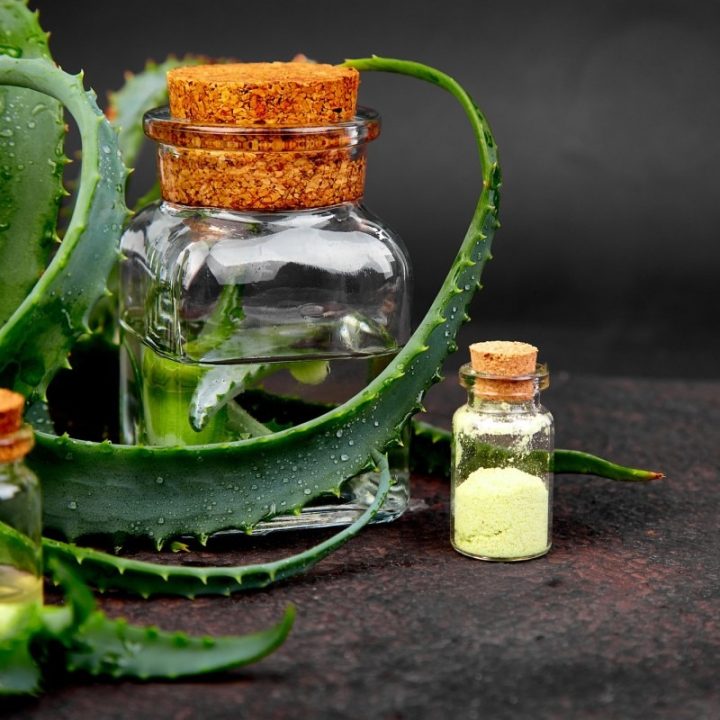
DIY Aloe Vera Mouthwash Recipe: Freshen Breath & Prevent Plaque
This homemade aloe vera mouthwash has been proven to prevent and reduce plaque as well as store-bought mouthwashes. It also freshens the breath and removes toxins and inflammation from the mouth which lesson chances of getting infections.
Materials
- ½ cup aloe vera juice
- ½ cup of distilled water
- 2 teaspoons sea salt
- 10 drops peppermint essential oil
- 5 drops cinnamon oil
- 1 teaspoon xylitol (optional)
Tools
Instructions
- Mix the salt with the essential oils to help the oils to disperse throughout the water.
- Add all ingredients to a bottle and shake well.
- To use, swish a cupful or about 1-2 tablespoons of mouthwash around your mouth for 1 minute.
- Spit and don’t swallow. Although all ingredients are edible, this mouthwash removes toxins that you want out of your body, not in your body.
Conclusion
Thanks to ongoing scientific studies, we are being warned about the negative impacts of using standard mouthwash on our dental health and overall well-being.
This movement allows us to scrutinize our oral hygiene lifestyle and make adjustments to prevent aggravating our dental issues.
One good alternative to regular oral rinse is an aloe vera-based mouthwash.
Combined with other clinically-proven effective ingredients, this formulation will do the job of restoring the health of your mouth and teeth.
I hope that this aloe vera mouthwash recipe will soon become a part of your routine towards optimal dental health.
FREE 26 Incredible Benefits of Oil Pulling Cheatsheet
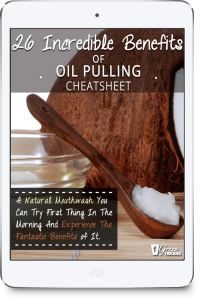 Use this easy one-ingredient mouthwash first thing in the morning and experience the fantastic benefits of it!
Use this easy one-ingredient mouthwash first thing in the morning and experience the fantastic benefits of it!
Click here to get your 26 Incredible Benefits of Oil Pulling Cheatsheet
More Related Posts You Will Love
- How To Use Kelp Powder For Teeth: Proven To Eliminate Plaque
- 25 Proven Ways To Whiten Teeth Naturally Overnight At Home
- Home Spa Ultimate Guide (Ideas, Recipes, Benefits, Treatments)
Sources
- https://www.ncbi.nlm.nih.gov/pmc/articles/PMC4253296/
- https://www.ncbi.nlm.nih.gov/pmc/articles/PMC4439686/
- https://europepmc.org/articles/pmc6036875
- https://pdfs.semanticscholar.org/4cb0/f214e8e247f0e6e2d6040c99b0973332ca1f.pdf
- http://www.jispcd.org/article.asp?issn=2231-0762;year=2016;volume=6;issue=3;spage=251;epage=255;aulast=Chhina
- https://www.researchgate.net/publication/12822103_Gingiva_teeth_and_sea_salt
- https://www.ncbi.nlm.nih.gov/pmc/articles/PMC3894100/
- https://www.ncbi.nlm.nih.gov/pmc/articles/PMC4054083/
- https://www.ncbi.nlm.nih.gov/pmc/articles/PMC4003790/
- https://www.ncbi.nlm.nih.gov/pmc/articles/PMC5320817/
- https://www.ncbi.nlm.nih.gov/pmc/articles/PMC4232036/







